Visit Tuscie: what are the best things to do and see in this historic region of Italy?
Are you on a trip to Italy and want to get out of the beaten paths? Without hesitation, take the direction of Tuscie, a little known region, close to Rome But it's worth the detour!
It extends from the province of Viterbe to the north of Latium , passing through Tuscany , to finish Umbria . Its Italian name, “La Tuscia” (or Etruria), comes from the “Tusci” (the Etruscans), which lived in this historic region between the VI and II centuries BC. By exploring this beautiful region, you will have on several occasions the opportunity to observe magnificent testimonies of this time and civilization.
Ideal for a road trip, this region is fascinating, both for the historical treasures it contains, and for the hilly landscapes it offers. Between emerald lakes, small villages of character, baths or archaeological sites, it is a panel of different activities and places that offer to you if you come to visit the Tuscie.
There are a lot of things to see and do in Tuscie, but we tried to draw up the list of must-sees, not to be missed under any pretext. This is it!
1. Viterbo
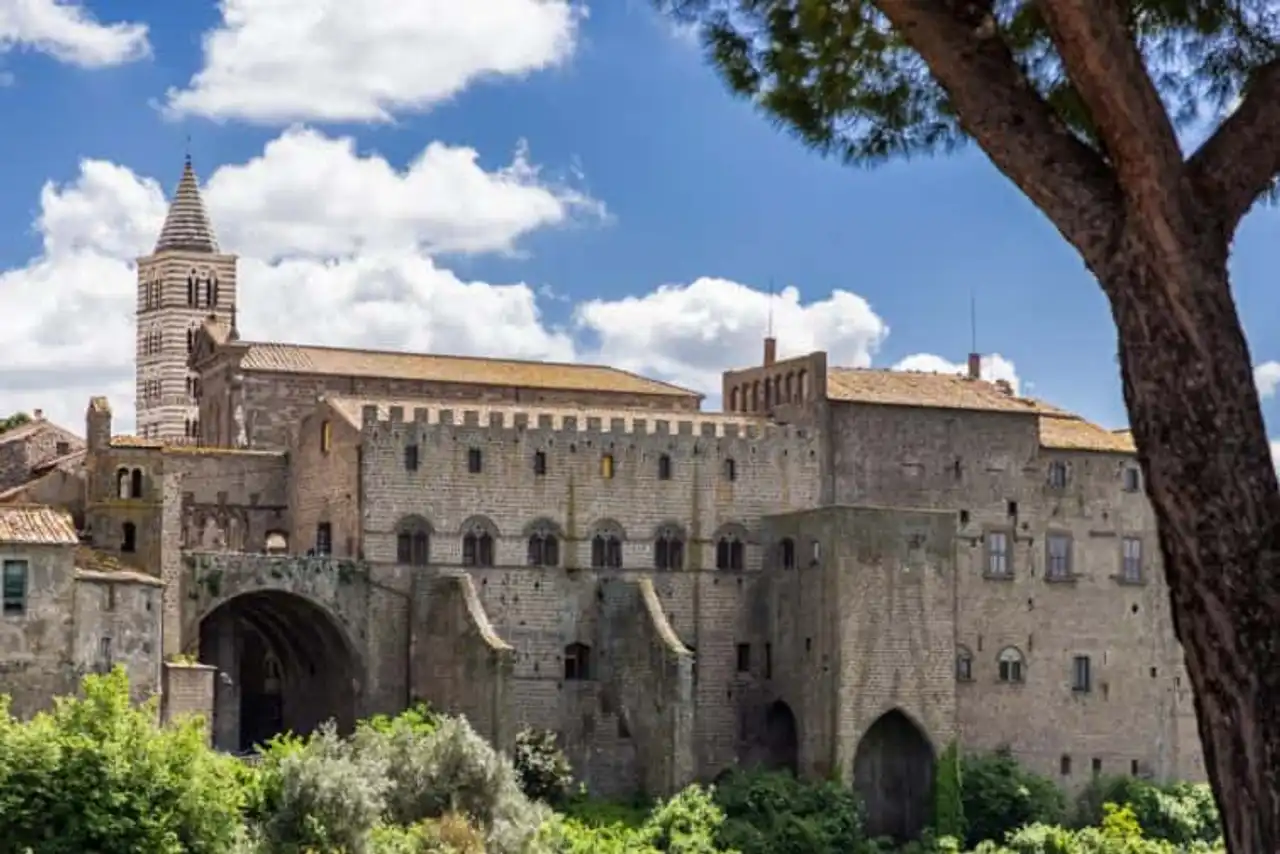
Photo credit: Shutterstock – DinoPh
No way to visit the Tuscie without passing through its capital: Viterbo (or Viterbo). This fortified city is also called the city of the Popes, because it was their place of residence in the 13th century. The Palace of the Popes is also one of the major attractions of the city. Don't miss visiting the magnificent cathedral, or the " Palazzo dei Priori "which offers a magnificent view of the city from its terrace.
The city is also known for its authentic medieval district, where time seems to have stopped. Take the time to walk around the middle of its picturesque streets and its " piazzas Typical. You're gonna love it!
2. Lake Bolsena
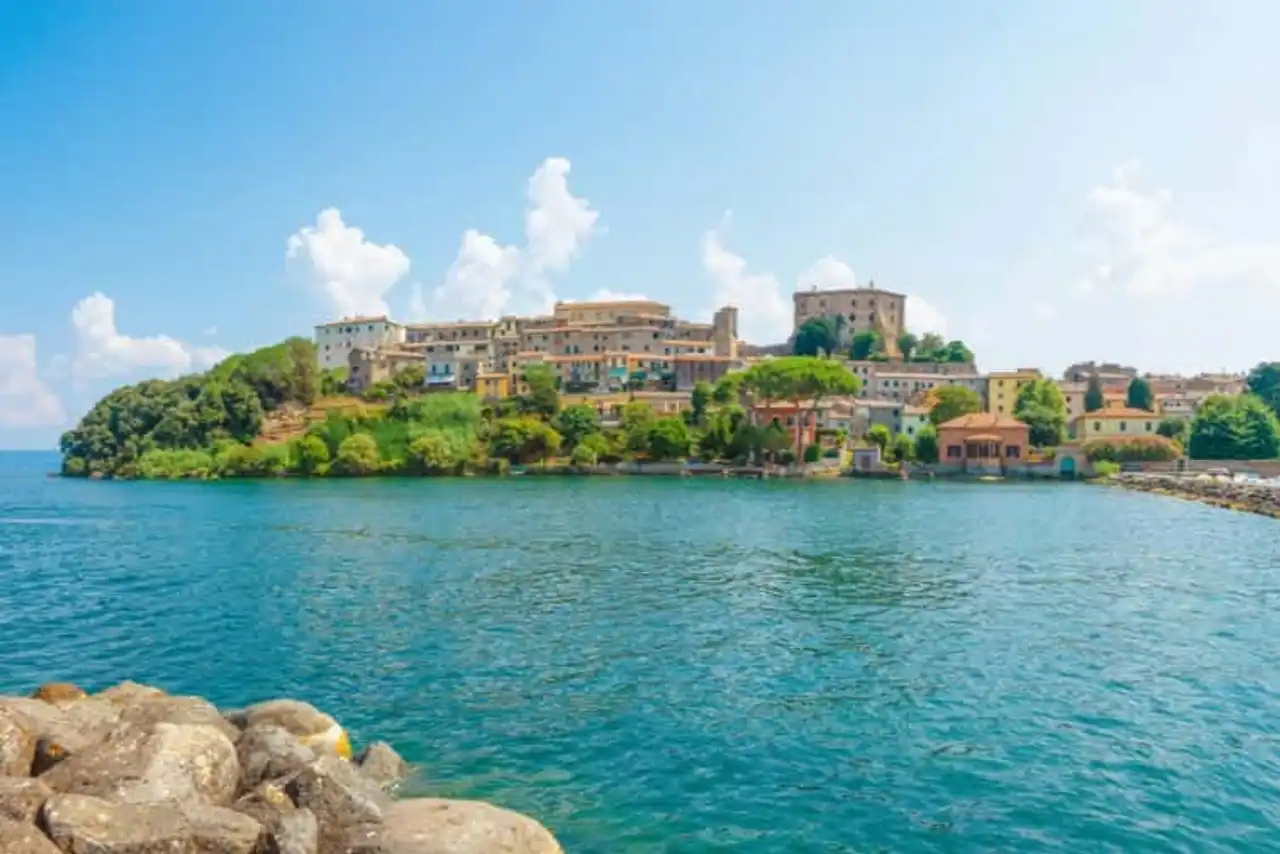
Photo credit: Shutterstock – ValerioMei
You can't visit the Tuscie without making a stop at Lake Bolsena , located at 90 km Rome. Its form and situation in the heart of the country is worth the nickname of “the navel of Italy”.
A true landmark attraction of the region, this crystalline lake of volcanic origin, is the largest crater lake in Europe. Here, lovers of swimming and water sports give themselves to joy! Indeed, its clean and clear waters make it an ideal playground in the summer to cool off, or simply enjoy the quiet surrounding a kayak ride for example.
In the middle of the lake, there are 2 small islands preserved, where nature is still intact: the island Biseina and island Martana .
The shores of the lake have several small medieval villages with a certain charm, as Bolsena , of the same name, but also Marta , Montefiascone or Capodimonte . We advise you to explore them all during a tour of the lake by car.
3. Civita di Bagnoregio
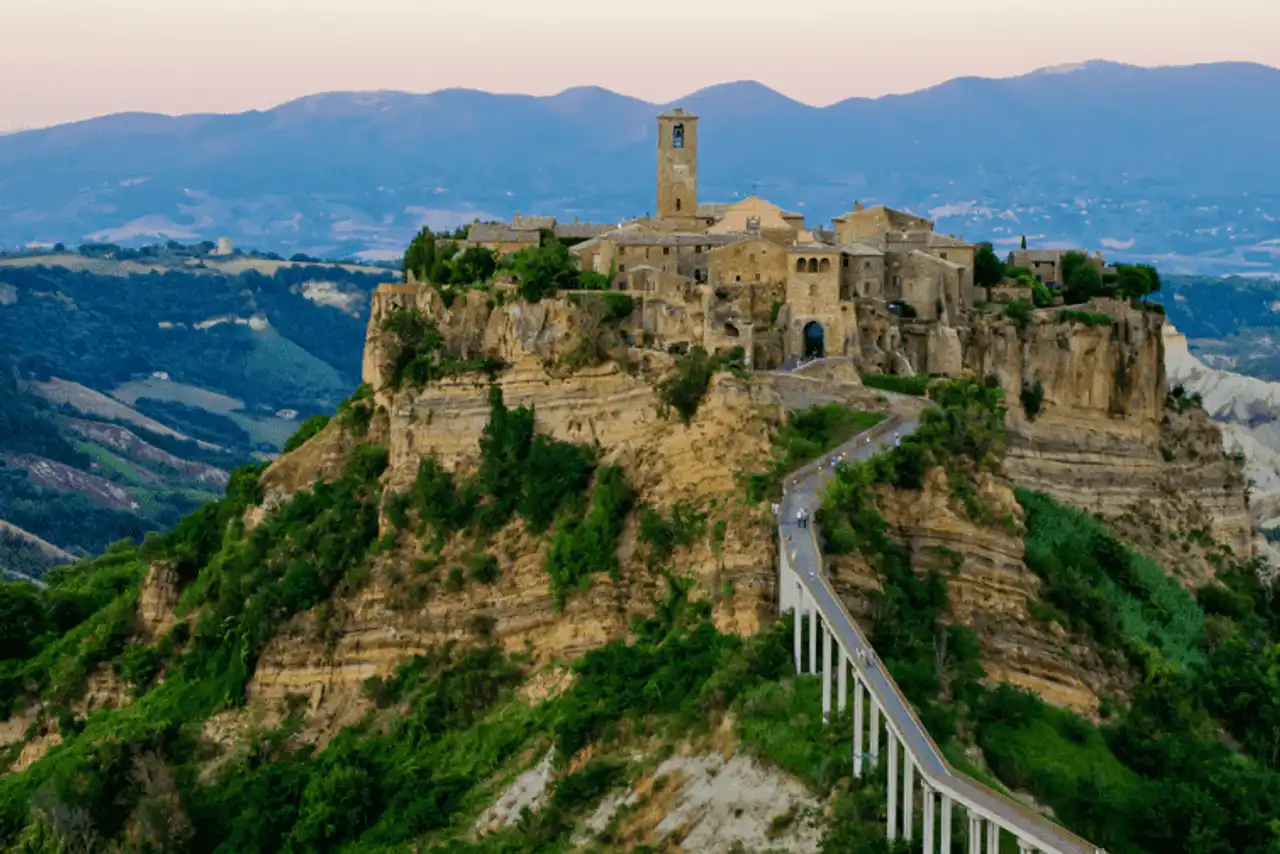
Photo credit: Shutterstock – daringtoexplore
Visiting the Tuscie is discovering through the days of charming and amazing medieval hamlets. Not far from the lake of Bolsena, discover that of Civita di Bagnoregio.
Dominant Vallei dei Calanchi , it is ranked among the “most beautiful towns of Italy” and has no more than a dozen inhabitants. Its particularity is that it is located on an extremely friable rock sparrow that collapsed over time.
It is now accessible only on foot via a bridge. Once the crossing is over, you will arrive in a picturesque place, as fixed in time. Here, the medieval atmosphere that reigns in the heart of alleys promises you a jump in the past and nice memories.
4. Vitorchiano
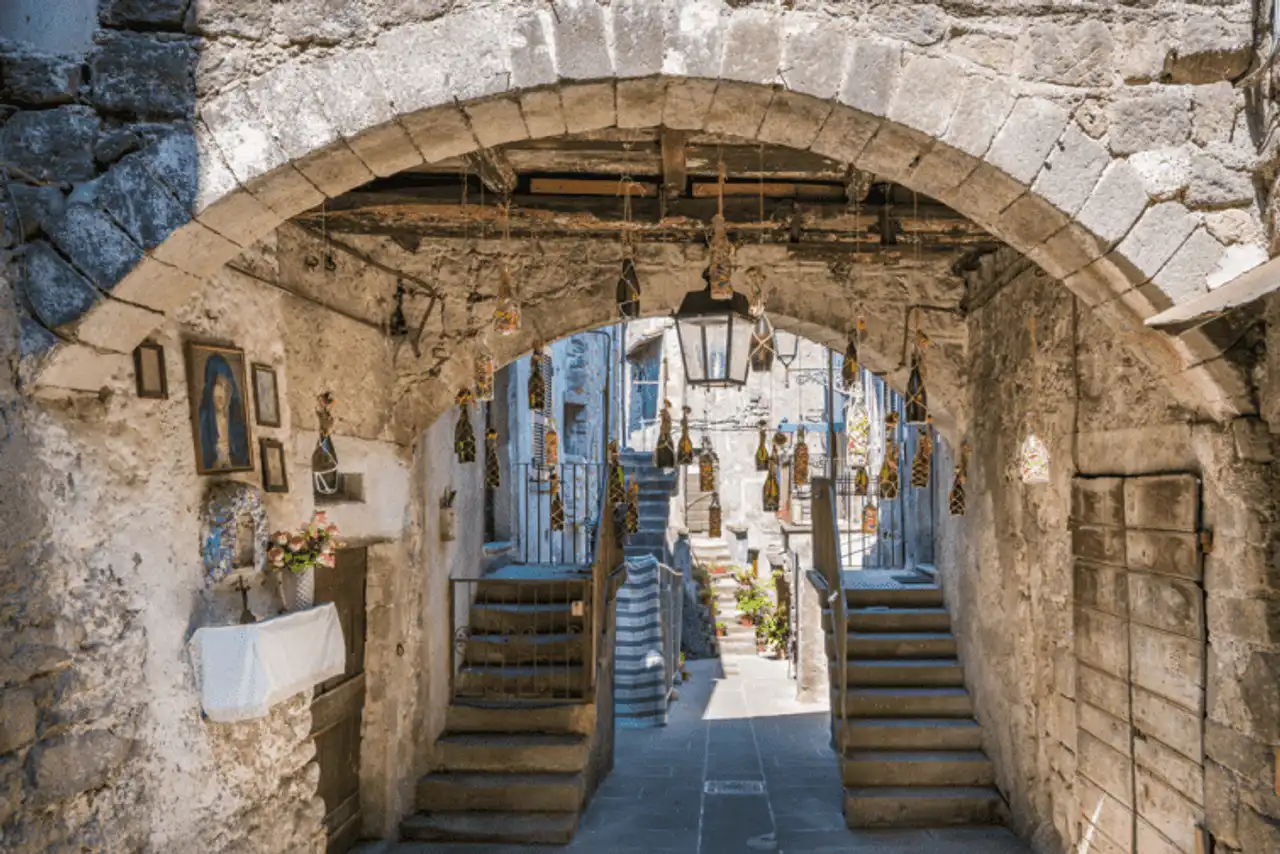
Photo credit: Shutterstock – essevu
Coming to the Tuscie, don't miss a tour in the pretty town of Vitorchiano. Located at 8.5 km In the east of Viterbe, this medieval town is perched at the top of a cliff overlooking the forest. Beautiful discoveries await you in his heart.
First, its historic centre, protected on each side by two deep ravines, and its medieval buildings, very well preserved. Its pretty paved streets welcome nice terraces, where you can enjoy an incredible view of the time of a refreshing little break. Don't miss visiting the " Palazzo Comunale “ Sainte-Marie church , or even convent Sainte-Agnès 15th century.
For small hollows, direction the southern part of the city, which offers a wide choice of bar and " trattorias authentic, serving a typical cuisine.
Finally, nature lovers will be filled with a multitude of small paths that are lost through the hills and the surrounding forest.
5. Tarquinia
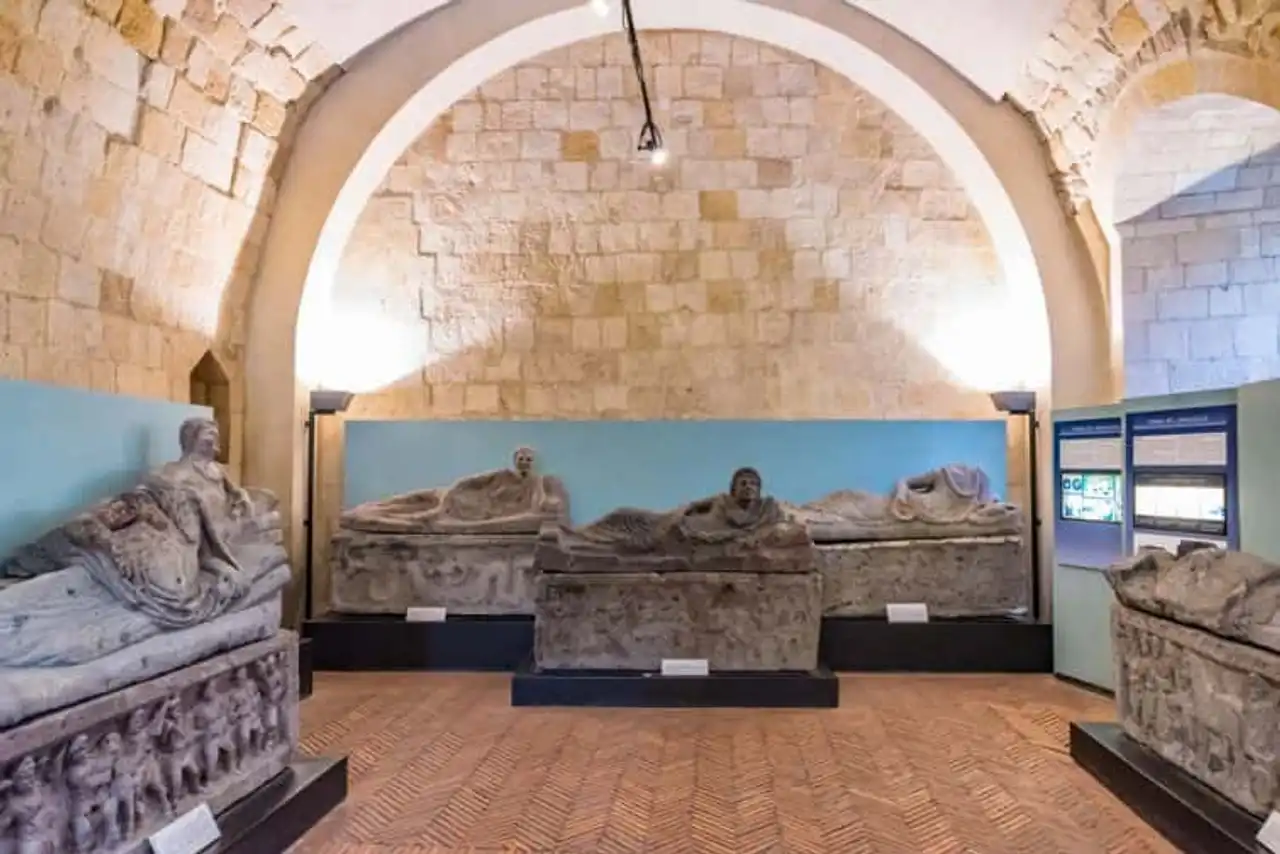
Photo credit: Shutterstock – Takashi Images
What do you ask in Tuscie? The city of Tarquinia, one of the oldest and most important cities in the Etruscan era, is a compulsory passage from the region. You will discover the National Archaeological Museum, located in the Vitelleschi Palace . This is the ideal place to know everything about the fabulous Etruscan civilization.
6. The necropolis of Monterozzi
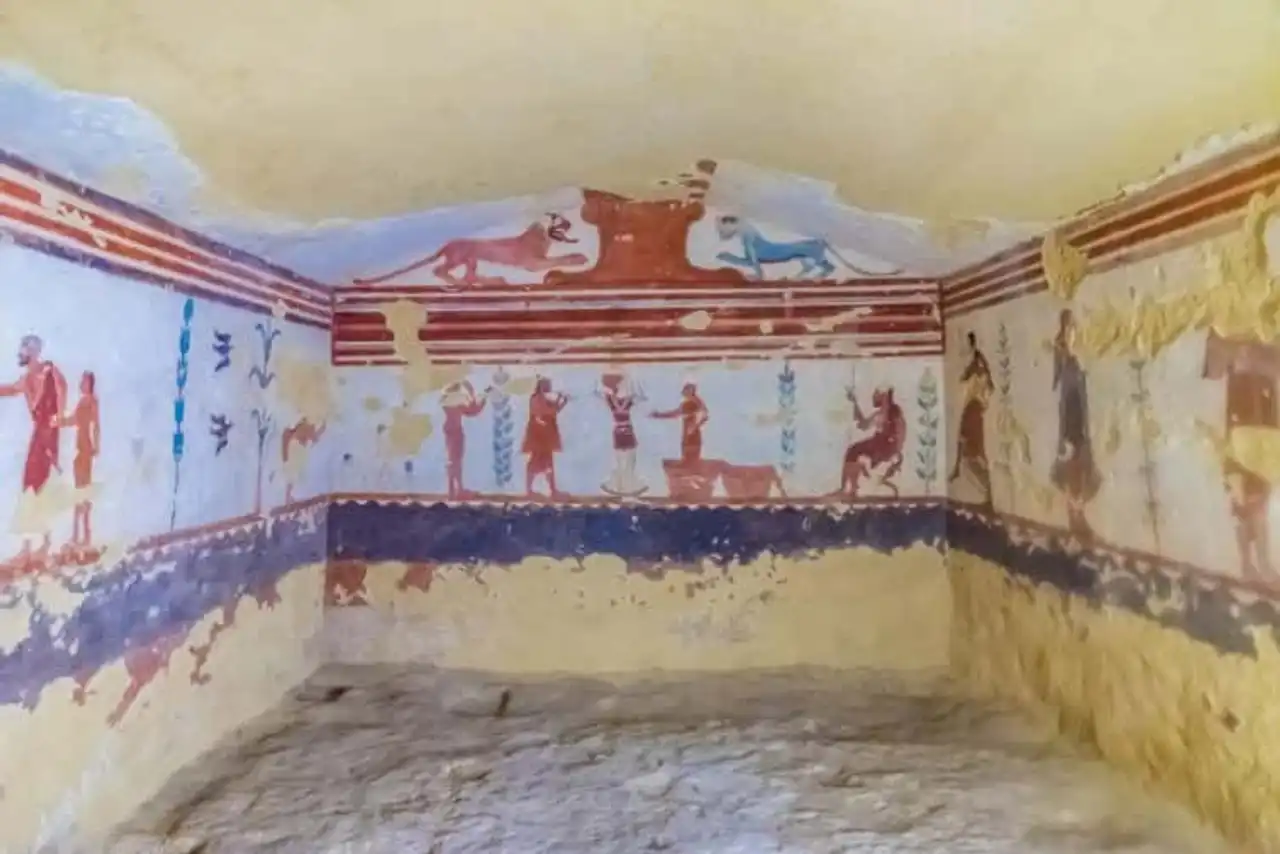
Photo credit: Shutterstock – Takashi Images
A few kilometers from Tarquinia, at the top of a hill, is the impressive necropolis of Monterozzi. Do not miss under any pretext if you come to visit the Tuscie! Indeed, this fascinating place is on the UNESCO World Heritage List.
The necropolis contains near 6,000 tombs accessible by a staircase descending underground. Among them, 200 are beautifully decorated, by incredible paintings, representing daily life at the time of the Etruscans. A place full of history and emotion.
7. Tuscania
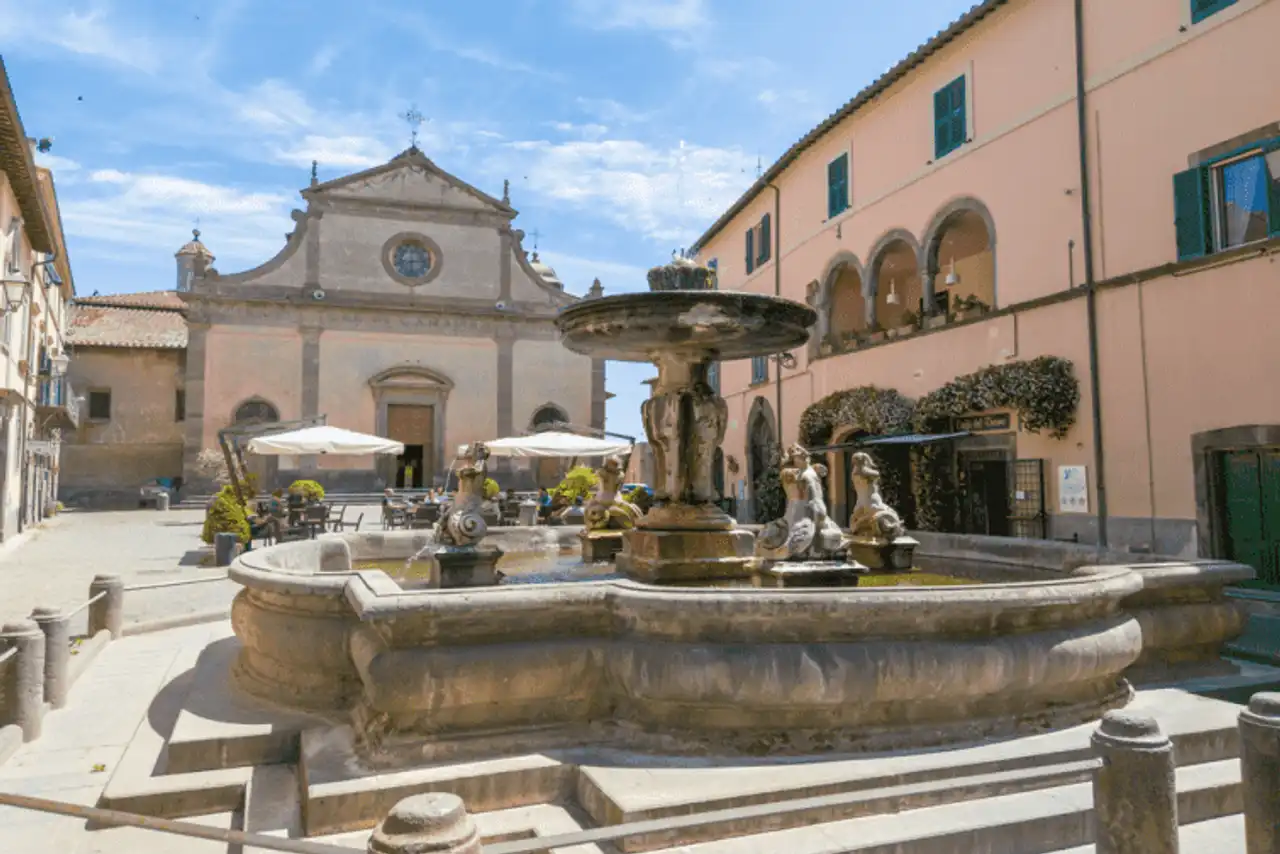
Photo credit: Shutterstock – ValerioMei
You cannot visit the Tuscia without discovering one of its oldest cities, Tuscania (formerly called Tuscanylla). This traditional and picturesque town is full of history. The city’s two imposing basilicas and the frescoes they contain are there to testify. These are the San Pietro and Santa Maria Maggiore .
8. Caprarola and his palace
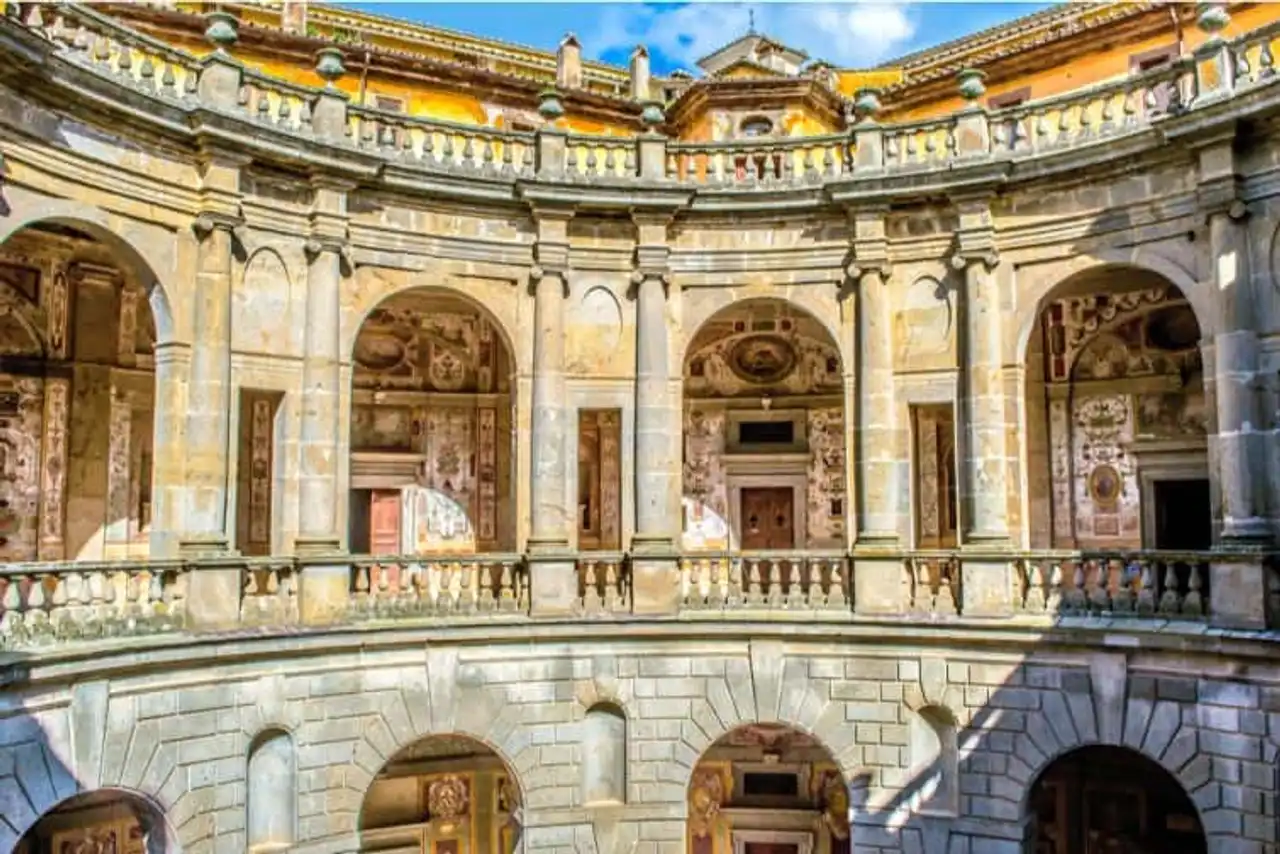
Photo credit: Shutterstock – Luca Lorenzelli
What to do in Tuscie? Discover the small village of Caprarola and its impressive « Palazzo Farnese "No doubt. Also known as Villa Farnese, this palace is one of the most impressive testimonies of the Renaissance region.
The city also has several churches to visit, sheltering for some, magnificent works of art. Among them, Saint Dame de Consolation church , Church of San Marco or the Saint Michael Cathedral .
9. Bomarzo and its gardens
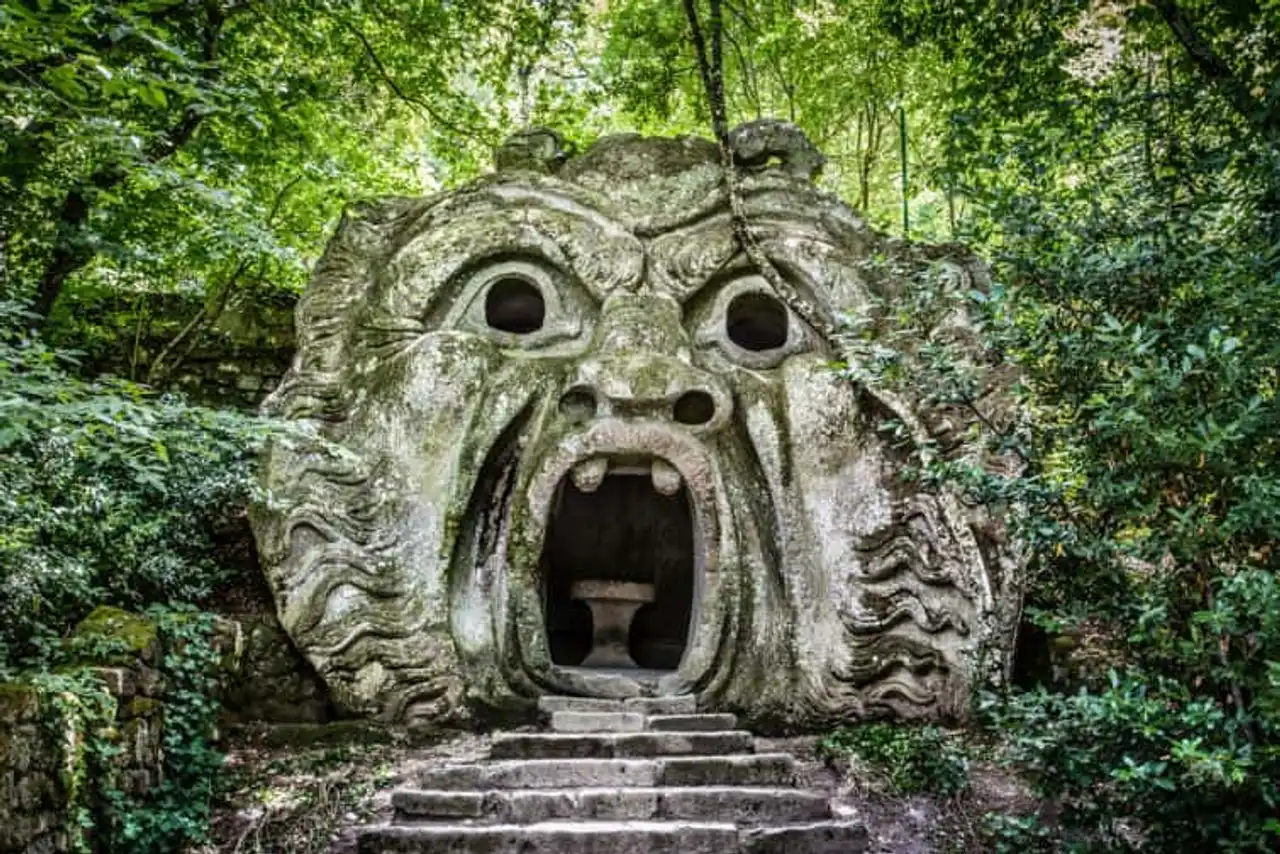
Photo credit: Shutterstock – canadastock
Visiting Bomarzo and its gardens is a real must-see in Tuscie. Located north of Lake Vico , this village houses a spectacular and amazing garden, nicknamed " Parco dei Mostri Or the monster park!
About near 20 hectares , are arranged about thirty buildings including a dozen huge scary statues, representing monsters of Greek mythology. They were carved on site, in the volcanic stone, by a famous landscaper, Pirro Ligorio, at the request of Condottiere Vicino Orsini in 1550. Why? It's still a mystery! But this extravagant garden is really worth a look if you are going to visit the Tuscie!
10. Bagnaia and Villa Lante
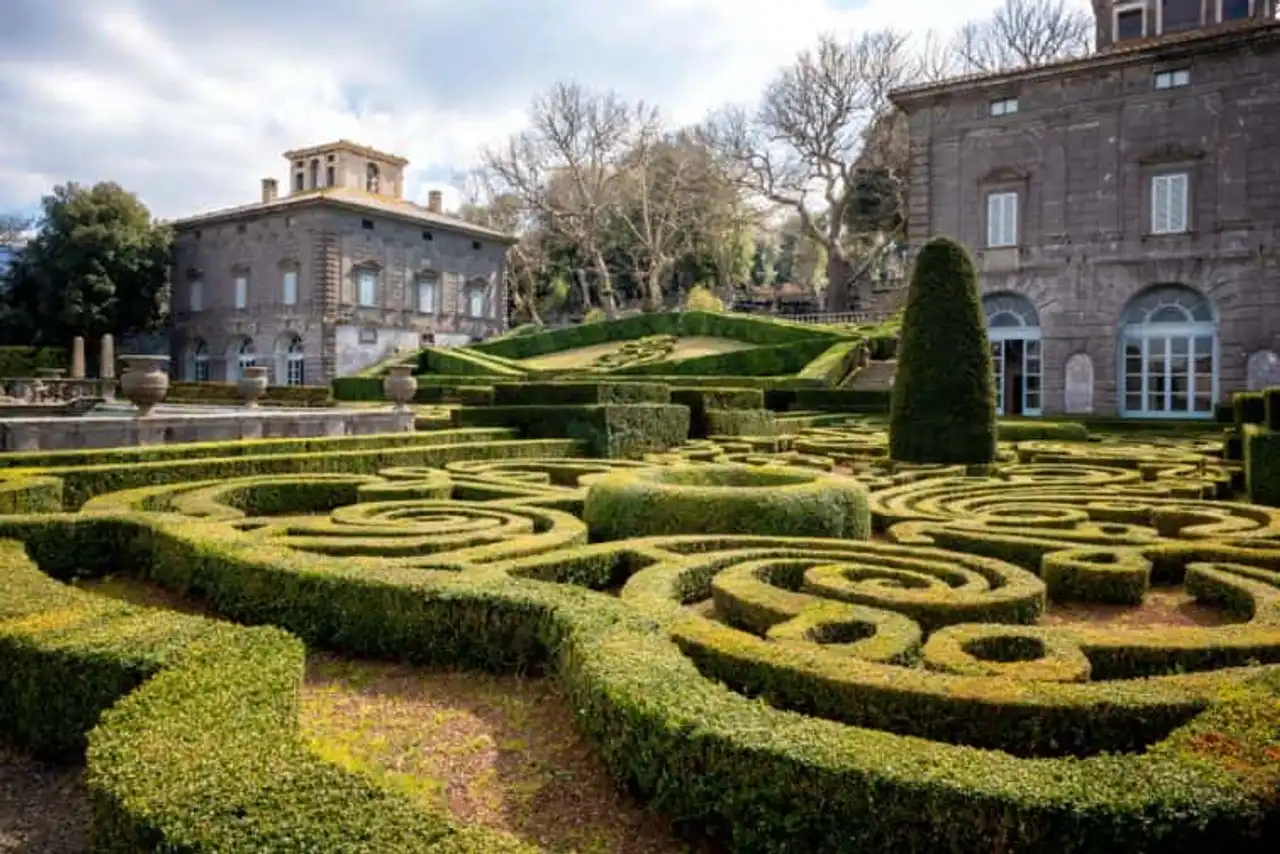
Photo credit: Shutterstock – Massimo Santi
By going to visit the Tuscie, go to discover this pretty hamlet with small narrow and charming streets. Here, a walk promises you a moment of escape in another era.
Villa Lante Bagnaia and its immense gardens, built in the sixteenth century for the bishop of Viterbe, Giovan Francesco Gambara, will punctuate your visit with an elegant note.
Indeed, it is one of the most beautiful examples of the Italian Renaissance that will plan under your eyes. Walk in the middle of its vast Italian gardens, arranged in five terraces, where the statues marvel at the basins and geometric fountains of the place.
11. Montefiascone
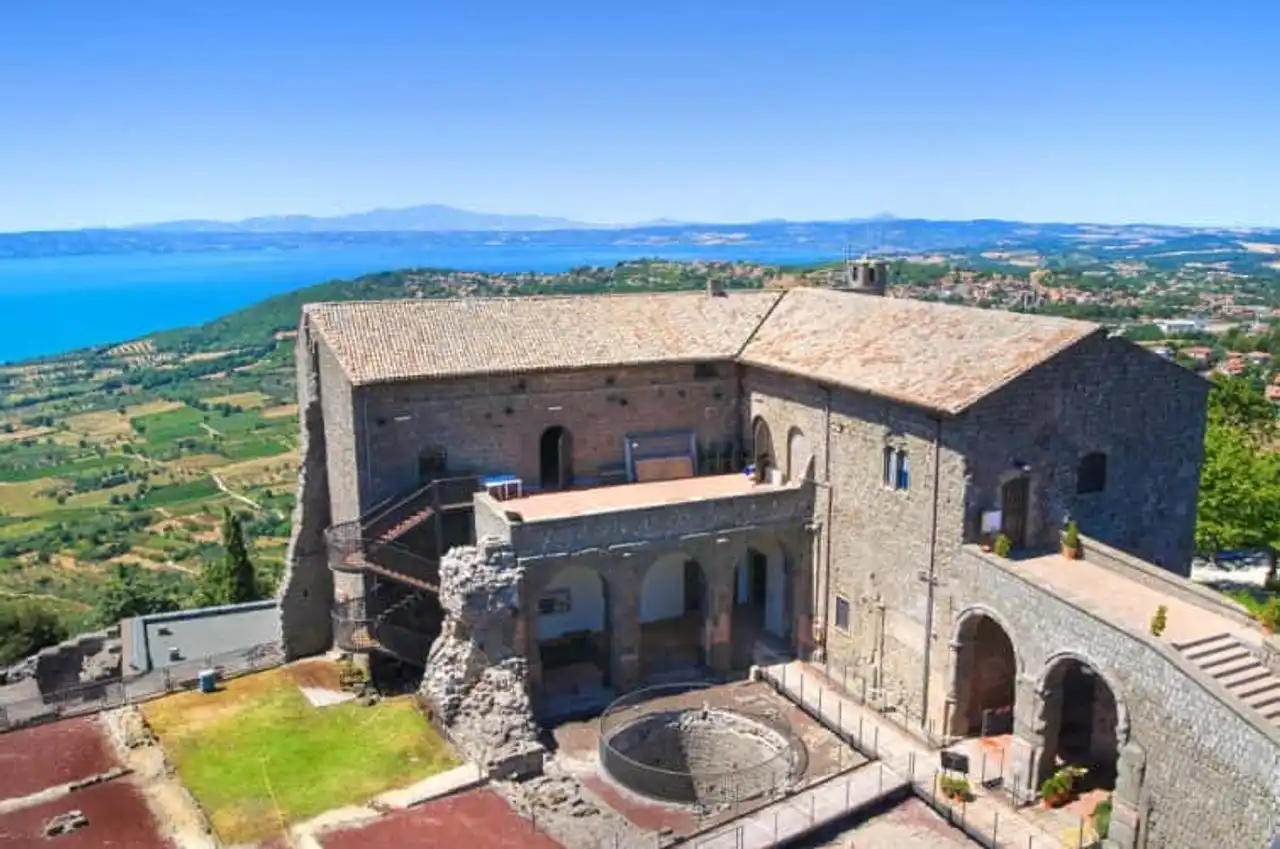
Photo credit: Shutterstock – Miti74
On the shores of Bolsena Lake, a multitude of small villages are linked. But if there is one to discover without hesitation, it is Montefiascone, the greatest of all.
First of all, because its location at the top of a hill makes it an amazing view of the lake, to the Tyrrhenian Sea. But the village also has magnificent monuments to admire or visit, like the Rocca dei Papi (stress of the popes) and his gazebo, Cathedral of Santa Margherita , or the San Flaviano church .
12. The Baths of the Tuscie
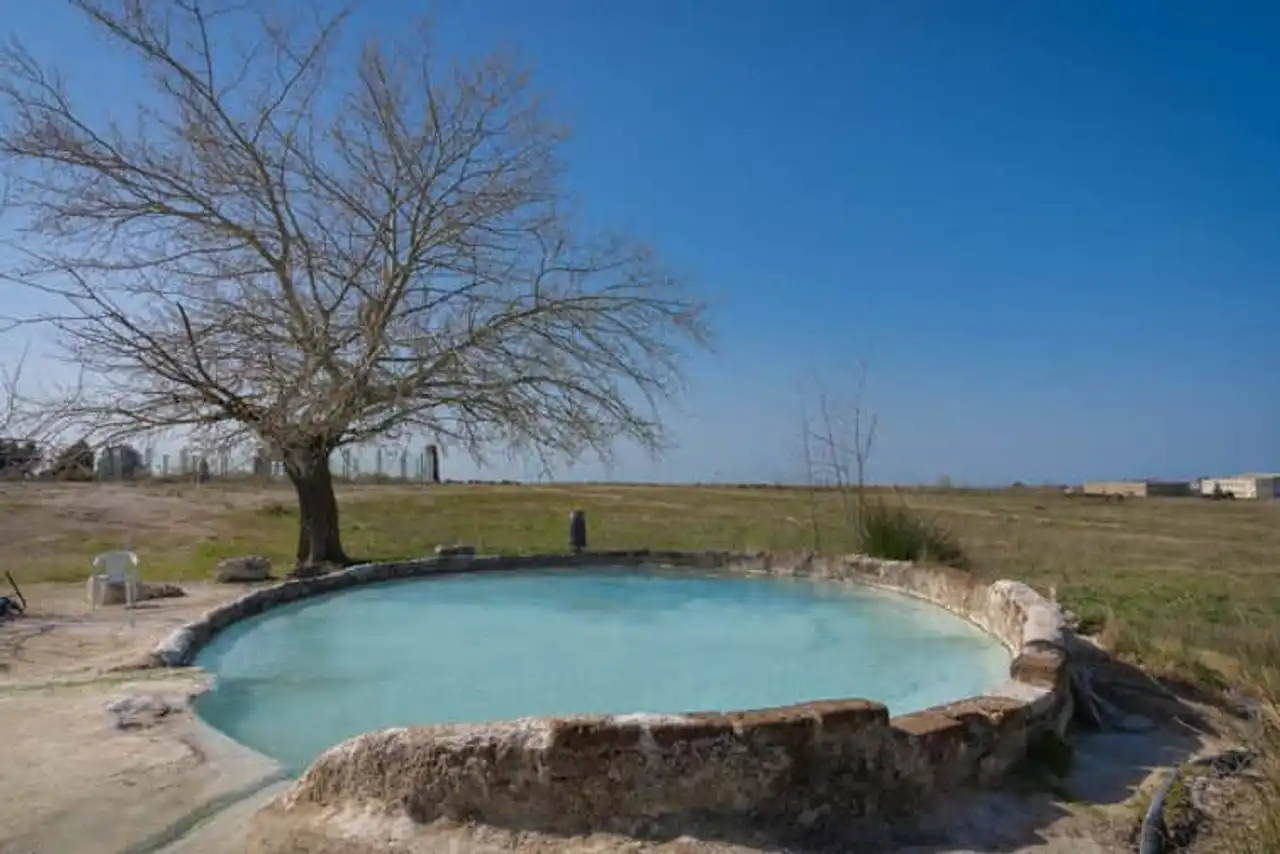
Photo credit: Shutterstock – siete_vidas
If there is something to do in Tuscie, it is to enjoy its well-known spas. Indeed, its geographical location on a volcanic land makes this region a renowned spa.
One of the most important thermal springs is that of Bulicame . It is located west of the city of Viterbo. You can enjoy this source free of charge where the water springs to 60°C . A real happiness!
How do I go to Tuscie?
You want to visit the Tuscie and ask yourself how to get there? Here are our tips:
By plane
To come visit the Tuscie, you can fly to the airport Rome , located 1:30 about the city of Viterbe. Once on site, the simplest is rent a car to discover the region as you like, and at your own pace.
To get tickets at the best price, do not hesitate to use a flight comparison like Skyscanner .
By train
A train line makes the route Rome/Viterbe daily , several times a day. A direct train will take you there 1h40 for an inclusive rate between 8€ and 17€ , according to the schedule.
By car
It is quite possible to reach the Tuscie by car from France. The "capital" of the region, Viterbo or Viterbo, is located in 200 km south Florence and to 100 km North Rome .
- Rent a car for the Tuscie
Where to stay in Tuscie?
If you choose to visit the Tuscie, there is no concern to accommodate you. Either you decide to stay in Rome, and in this case a multitude of choices, categories of hotels and budgets are available to you.
Either you decide to survey the region over several days, and you will find on your way guest rooms or small boutique hotels in the different villages you will cross. You will also find some Airbnb accommodations, to live as a local. As the villages are small and few, we advise you to book in advance , to avoid bad surprises.
And to find the best prices, do not hesitate to search for a Compare hotels online, or on the platform Airbnb .
So you're ready to go to Tuscie? One thing is certain, you're gonna be conquered!
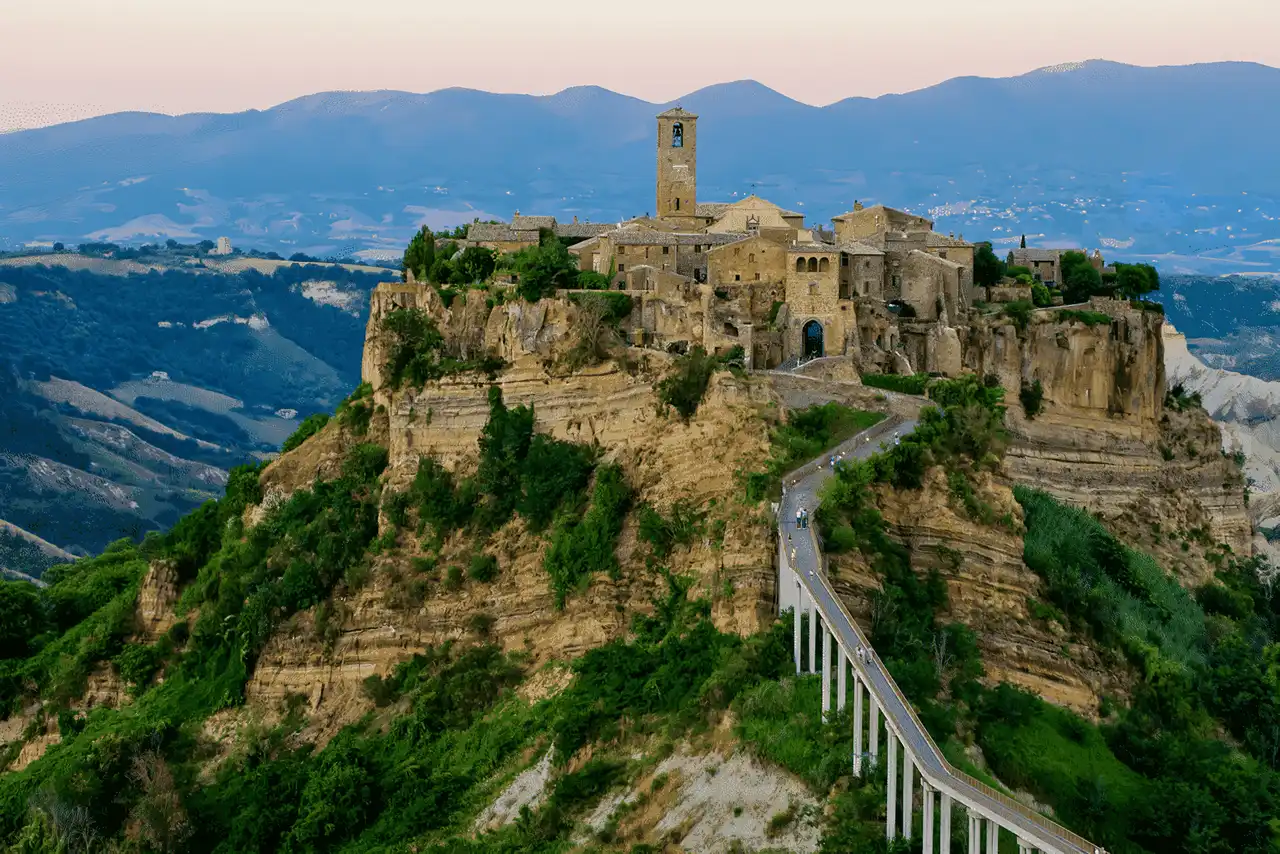




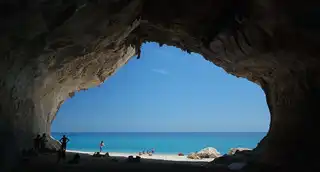
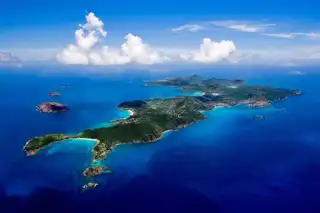

Loading comments ...